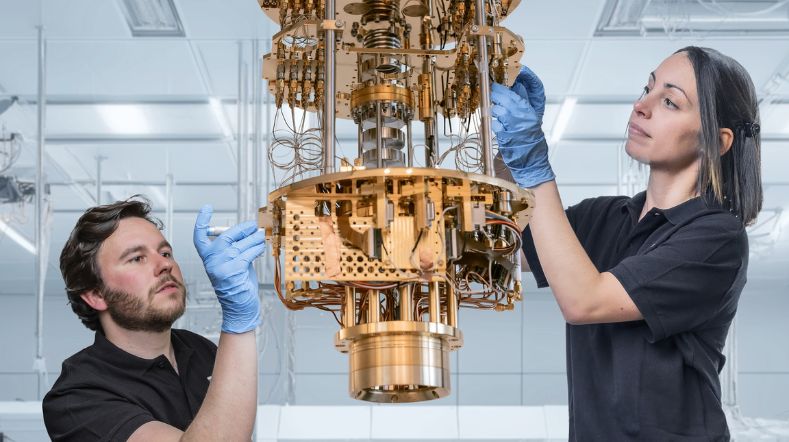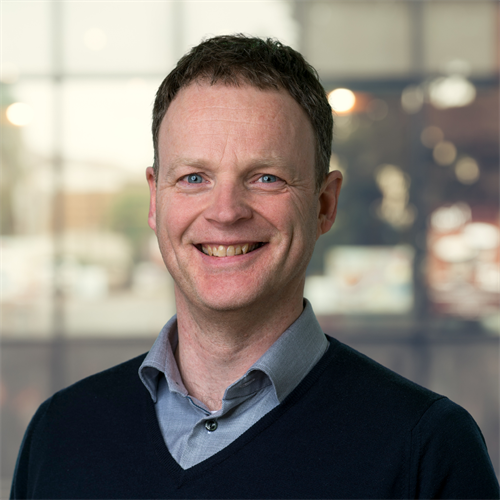
Pioneering with a purpose: The Netherlands at the forefront of quantum innovation
‘Quantum is not a niche. This key technology is geopolitical,’ says Rogier Verberk firmly. As Director of Semicon & Quantum at TNO, he sees the momentum growing: ‘The Netherlands is now able to build on its leading global position in quantum technology and generate new business.’ In this interview, he explains why quantum technology is much more than a scientific breakthrough, and how TNO is working with companies and knowledge institutions on applications that could fundamentally change our society.
How did TNO get into quantum technology?
‘We started working on quantum back in 2014. At that time, universities were mainly experimenting out of curiosity and creativity. At TNO, we always start by asking ourselves: how can we apply this in the real world? We turn knowledge into something you can measure, repeat, and eventually scale up. That is why TNO and Delft University of Technology joined forces, working very closely with support from the Dutch government and other organisations. This has given us a huge boost. Not just to make an impact in the Netherlands, but also internationally.’
What makes quantum so special?
‘This is a technology that really works quite differently from what we are used to. A quantum computer uses not only zeros and ones for its calculations, but also qubits, which can be a zero and a one at the same time. This means that, in some cases, you can calculate millions of times faster. Quantum can be useful for challenges such as optimising complex pathways, understanding protein structures, or detecting money laundering in huge databases.’
But quantum is about more than just working things out faster, is it not?
‘Absolutely. Quantum communication makes it possible to send and receive messages that cannot be intercepted undetected. This is a huge step for sectors where security is critical, such as defence and financial services. And then you have quantum sensing, where we use the extreme sensitivity of quantum particles to measure things you would not otherwise be able to see. Think of applications in the chip industry, medicine, or defence.’
TNO's quantumtechnologies
Together with partners, TNO accelerates the development of groundbreaking and innovative quantum technologies. From the building blocks and chips that enable the technology to fully developed devices and applications, we make rapid market introduction possible and ensure the greatest possible impact on society. Read more via the link below.
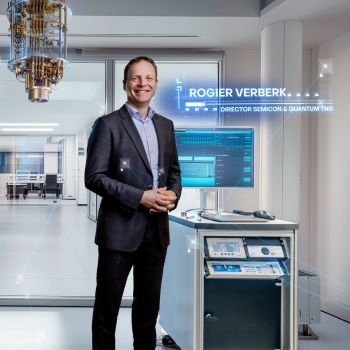
'Quantum communication makes it possible to exchange messages that cannot be intercepted without being perceived. This is a major step forward for sectors where security is crucial, such as defence and financial services.'
Quantum sounds complicated. How do you make sure it actually works?
‘Quantum is complex indeed. It involves all kinds of disciplines: extremely low temperatures, light, magnetic radiation, integrated photonics… but at TNO, we have all this expertise under one roof. That means we can innovate with this new technology, even when we still have more to learn about it.’
TNO is working with quantum chips similar to ordinary computer chips, right?
‘Quantum processors can be built in different ways, but we consciously choose materials that are partly also used in ordinary computer chips. In doing so, we bring in existing Dutch expertise from universities, TNO, ASML, and NXP, as well as the entire international chip industry that has the knowledge we need to produce these chips on a large scale.’
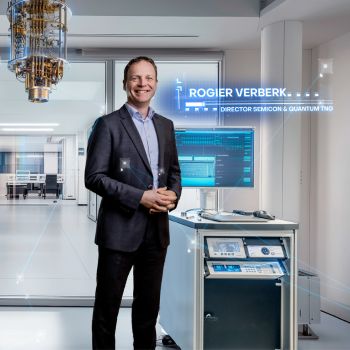
'Quantum is complex, but by combining knowledge from different disciplines we make it workable and align it with the existing chip industry.'
What is the biggest technical challenge you currently face?
‘Scaling up. You need a lot of qubits that all have to work together, which is tricky because they are extremely sensitive. That is why we have to cool them to temperatures below one degree Kelvin ‒ almost absolute zero. This makes a world of difference with something like your smartphone, for example, which still works if you drop it. And then we have to connect all those qubits with power wires: a well-known challenge in the chip industry, which is certainly not proving easy for quantum.’
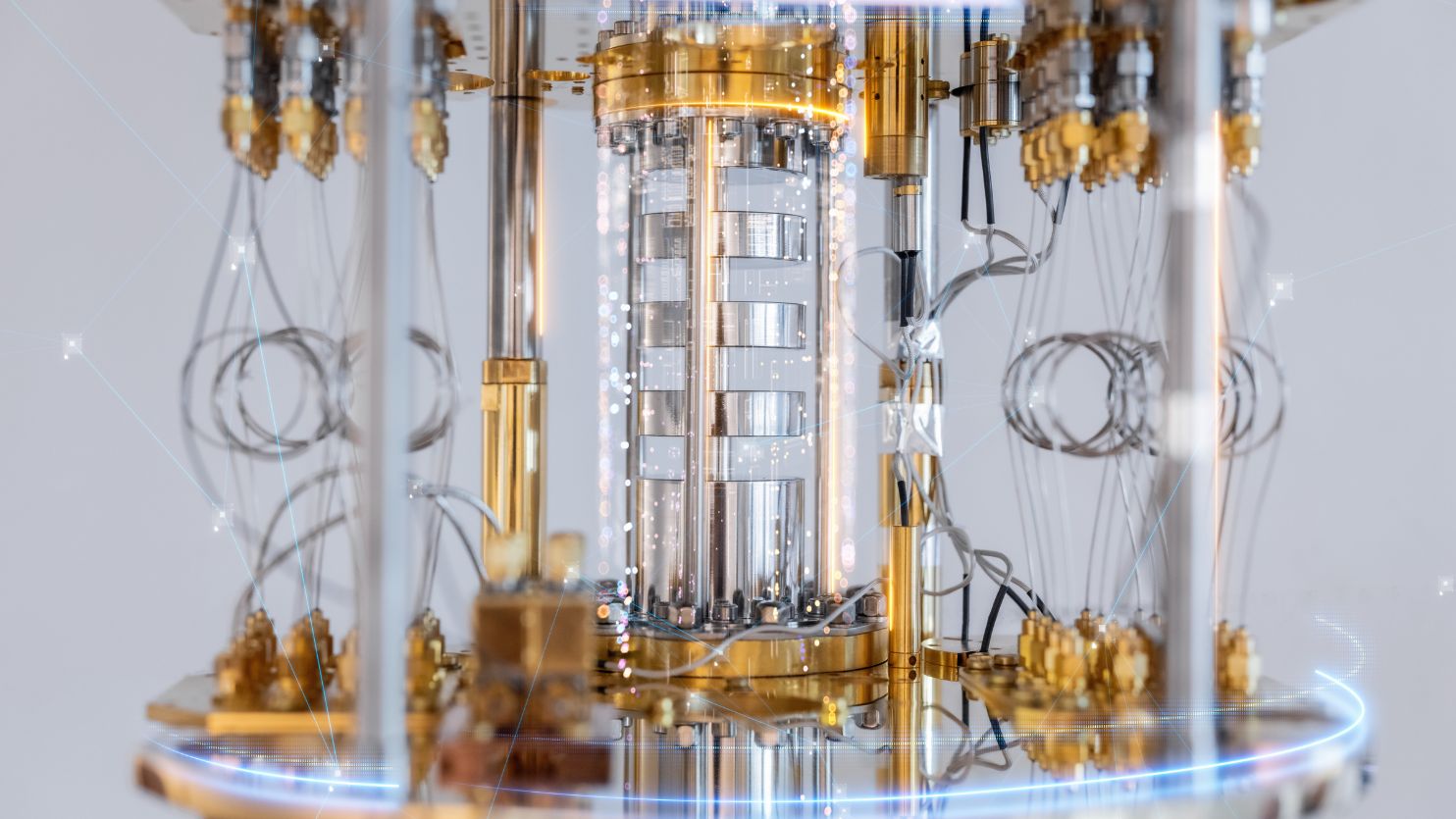
How far have we actually come?
‘If you want to know how long before we see a big quantum computer in the cloud, then that will take another 15 years. However, quantum sensors could be in use as soon as five years from now. Dutch start-ups have already emerged from our collaboration with Delft University of Technology, such as Orange Quantum Systems. They are testing quantum chips right now – a crucial step towards scaling up.’
What has changed since the early years?
‘In 2014, we were mainly working with universities and a few Big Tech companies in the US. Now, more and more companies are coming on board, which shows that quantum is starting to come of age. We will carry on until there are more companies that have their own products, after which point we can support them with knowledge and technology.’
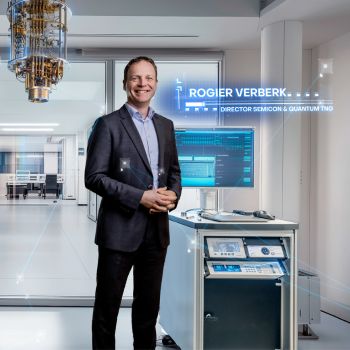
'The biggest challenge is scaling up: getting thousands of extremely sensitive qubits to work together. That is the task that must bring quantum into a mature sector.'
What is TNO’s wider ambition when it comes to quantum?
‘We want to create a vibrant business hub, ensuring that the Netherlands remains a global leader while also gaining an economic advantage. That means making sure that the start-ups we support, such as Orange Quantum Systems, really get a good foothold in the world. Their success is our success.’
But is the competition not fierce?
‘Absolutely. Everyone wants to be at the forefront. Billions are being invested in the United States and China. As a consequence, we need to keep up the momentum, working faster than everybody else. After all, technology is geopolitical. If Europe does not get involved, we risk falling behind other power blocs, leaving ourselves unable to catch up.’
What opportunities do you see for the Netherlands?
‘The Netherlands is good at building complex machines, with a strong ecosystem of suppliers: ASML, Besi, DAF, and Philips, to name a few. Quantum fits in with that perfectly. At TNO, we are constantly looking for ways to align these Dutch and European strengths.’
What the future holds
If the Netherlands can become a true global player in quantum technology, it will open up a future where we not only drive economic growth, but also accelerate social progress. Imagine a thriving ecosystem of companies, leading the world in quantum solutions for logistics, energy, and health care. If we manage to capture this position, we can harness innovation to serve people, solve complex challenges more efficiently and intelligently, and establish the Netherlands as a leading example. This is exactly what Rogier Verberk envisions: a quantum future where economic power and social impact go hand in hand.
Quantumtechnology
Curious about TNO's impact on quantum technology? Find out more via the link below.
Get inspired
TNO and Quobly join forces to advance industrial-scale silicon quantum technology
Pioneering on the edge of physics: quantum chips tested faster and faster


How TNO’s Ines Corveira Rodrigues shapes tomorrow's quantum world


Art and quantum: student team renders superposition tangible with TNO


TNO expands quantum information technology testing capabilities to support startups
